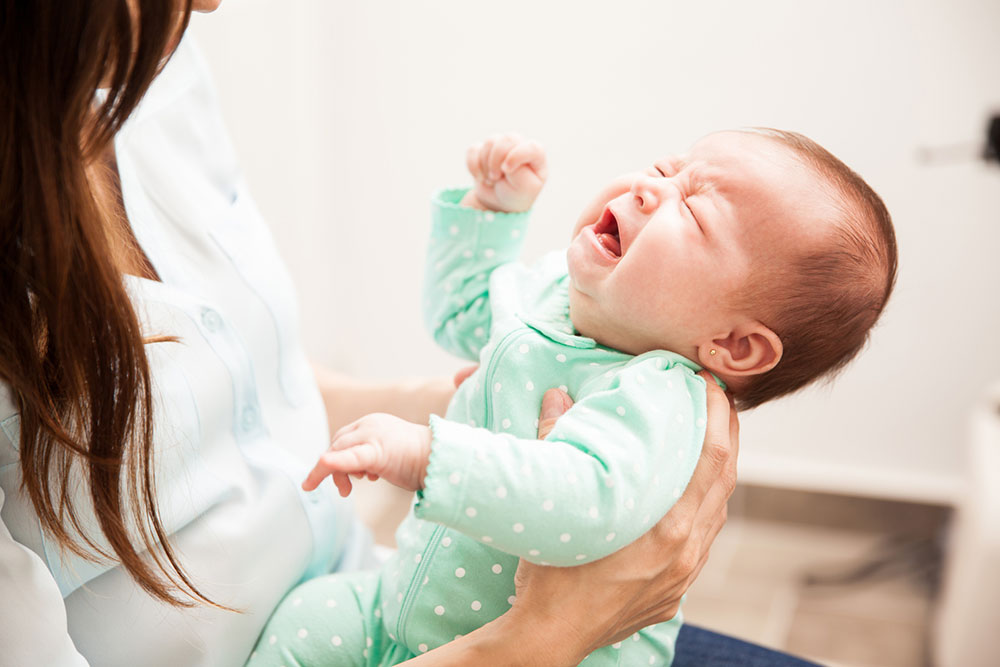A Quick Guide to Preventing and Treating Gas in Babies
It can be painful for new parents when their baby keeps crying for a long time, especially when they are unable to understand why their baby is crying. One of the main reasons why babies cry is due to gas as it creates pain. Babies tend to pass gas at least 13 to 21 times in a day.

Why do babies pass so much gas?
It is very common for babies to pass so much gas because they take in a lot of air when they are eating, being breastfed, sucking a pacifier or crying. All this air gets stuck in the tummy, and comes out in the form of gas. When the baby is unable to release the gas, they feel uneasy and get fussy.
With no words to express their uneasiness and pain, wails are the only way that babies can communicate how they are feeling. At such times, it is essential to take appropriate measures to comfort the baby by easing their pain.
What are the signs that your baby is having gas problems?
How do you know if your baby is crying because of gas? Here are the things that you should keep an eye on:
- Check out if your baby is crying frequently
- If the baby is arching the back away from you, it could be a sign of gas problems
- When their face is turning red
- If your baby is scrunching their face as if they are in pain
If you notice these signs, then you need to check if your baby is having trouble in passing gas, and you need to do something to make sure that your baby gets relief from gas.
How can a parent help their baby get relief from gas?
By following these tips, your baby can get relief from gas:
Check the feeding position
One of the best ways to prevent gas problems in babies is by checking the feeding position. When you are feeding the baby, even if it is with a bottle, you should try to tilt the baby’s head till it is slightly above their stomach. This way, the milk settles at the bottom of their stomach, and the air remains at the top. This position makes it easy for the baby to burp. The bottle also should be held slightly upwards so that there are no chances of air passing through it.
Make the baby burp
Another technique that can give your baby some relief from gas is burping. You can try to make your baby burp during the feeding session or after it. If you do not want to do it immediately after feeding, then you can lay down the baby for 5 to 10 minutes on their back and pat slightly as this helps them burp faster.
Easy to digest food
Food that is hard to digest for babies can cause more gas. Changes in a baby’s diet can also lead to excess gas. So, you should keep a close eye on your baby’s moods when you change their diet. You need to look for changes or problems that the baby faces after you introduce new food items. This small step will help your baby avoid foods that cause gas.
Pump your baby’s legs
One of the simplest ways to give your baby relief from gas is by pumping their legs. Lay down the baby on their back with their legs facing towards you and place their head on your knees. Now try to move their legs in a way like riding a bicycle. This exercise helps them release gas easily.
Massage your baby’s tummy
You can massage your baby tummy with baby oil. Lay the baby on their back and then slowly rub the tummy upwards. You can press your hand on the baby’s tummy lightly, and make them lean towards you. This massage can give your baby some relief from the gas stuck in their belly.
Talk to a doctor
You can talk to your doctor if your baby is crying too frequently, or if you are unable to understand the cause of your baby’s problems. Other than the remedies mentioned above, many medicines are available that can give your baby some relief from gas. Your doctor will prescribe one, and you can use it whenever your baby cries because of gas.
Gas is a widespread problem among babies, and you need not worry about it too much. Most of the times, you can solve this problem with some home remedies. You can also take some precautionary measures to prevent this problem. However, in rare cases, you might find it hard to treat the gas problem and provide relief to your baby. In such cases, it is advisable to consult a doctor immediately.











